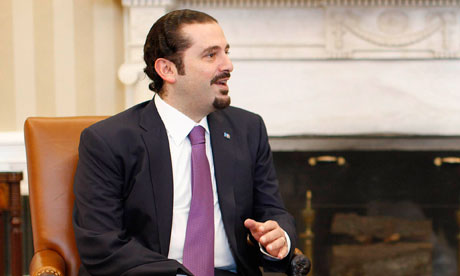Clinton presses Persian Gulf countries on Iran
By Associated Press ,
http://topnews360.tmcnet.com/topics...inton-presses-persian-gulf-countries-iran.htm
ABU DHABI, United Arab Emirates (AP) — U.S. Secretary of State Hillary Rodham Clinton said Sunday that the world must keep pressure on Iran over its suspect nuclear program despite recent estimates that the country may be further behind in efforts to develop atomic weapons than previously thought.
Clinton told reporters accompanying her on a three–nation tour of the Persian Gulf that Iran "remains a serious concern" no matter when it might be able to produce a nuclear weapon. And she urged countries in the region that do business with Iran "to do everything within reason" to help ensure the sanctions are enforced.
"We have had a consistent message to our friends in the Gulf that there is no part of the world that has more at stake in trying to deter Iran from becoming the creator and possessor of nuclear weapons than you," she said.
"I don't know that it gives much comfort to someone who is in the Gulf or in a country that Iran has vowed to destroy that it's a one–year or three–year timeframe. So, I think we should keep the focus where it belongs," she said, referring to the sanctions and efforts by world powers to persuade Iran to halt uranium enrichment.
Her comments were the first from a senior U.S. official in response to reports in Israel on Friday that Israel's newly retired spy chief thinks Iran won't be able to build a nuclear bomb before 2015, further pushing back Israeli intelligence estimates of when Tehran might become a nuclear power.
"We don't want anyone to be misled by anyone's intelligence analysis," Clinton said. "This remains a serious concern. We expect all our partners ... to stay as focused as they can and do everything within reason that will help to implement these sanctions."
As recently as 2009, Israeli Defense Minister Ehud Barak said Iran would be able to build a nuclear bomb by 2011. But since then the projected deadline has been extended. The Israeli Cabinet minister in charge of strategic affairs, Moshe Yaalon, said last week it would take the Iranians at least three years to develop a nuclear weapon.
Many Arab nations share U.S. fears that Iran is using a civilian atomic energy program to hide weapons development. Those concerns were amplified in leaked diplomatic cables released by the WikiLeaks website late last year that revealed deep mistrust of Iran by Sunni Arab leaders who must deal with an increasing emboldened Shiite neighbor.
Clinton acknowledged that one reason for her trip to the United Arab Emirates, Oman and Qatar was to try to contain damage done by the release of the classified cables, which have exposed embarrassing secrets and tensions in the region.
Her visit comes ahead of a new round of international talks with Iran, tentatively scheduled for Jan. 21–22 in Turkey. The five permanent members of the U.N. Security Council — the U.S., Russia, China, Britain and France — along with Germany will again try to compel Iran to come clean about its nuclear intentions, in return for incentives.
Iran is under four sets of U.N. sanctions because of its refusal to halt uranium enrichment, which can be used to produce nuclear fuel or materials for bombs. U.S. officials believe the penalties are hitting Iran's economy, but want them to be more strictly enforced and would like individual countries to take separate punitive measures on their own.
Tehran insists its uranium enrichment and other programs are meant only for peaceful purposes to generate fuel for a future network of nuclear reactors.
Clinton's trip to the Gulf is her second in as many months. She also attended an international security conference in Bahrain in December. While Iran is always high on the agenda during such visits to the region, her focus this time will be broader.
In her meetings with leaders in Abu Dhabi, Dubai, Muscat and Doha, Clinton said she would look for more Arab backing for the new government in Iraq and more financial support for the Palestinian Authority.
Some Arab states have yet to fulfill pledges to fully normalize relations with Iraq and open embassies in Baghdad, gestures of support that Washington wants to see as it winds down its military presence there.
"I would like to see every country open an embassy, I would like to see normal relations, I'd like to see the leaders of Iraq invited and consulted," Clinton said.
As the Obama administration struggles to get the Mideast peace process back on track, Clinton will push wealthy Arab powers to broaden their contributions to the Palestinians. The U.S. is keen to keep the development of Palestinian governmental institutions moving ahead.
Such progress may help forestall Palestinian moves to declare statehood or seek U.N. action against Israel.
"We continue to believe strongly that New York is not the place to resolve the longstanding conflict and outstanding issues between the Israelis and the Palestinians," Clinton said. "We do not think that that is a productive path for the Palestinians or anyone to pursue."
Clinton's visit also comes amid spikes of civil unrest in Arab states such as Tunisia and Algeria and deep alarm at the conduct of Egypt's recent elections.
In town hall events at most stops and at a regional conference in Qatar on Thursday, Clinton said she would promote democratic, economic and social change as ways to reduce tensions and blunt the threat from Islamic extremism, particularly among Arab youth.








